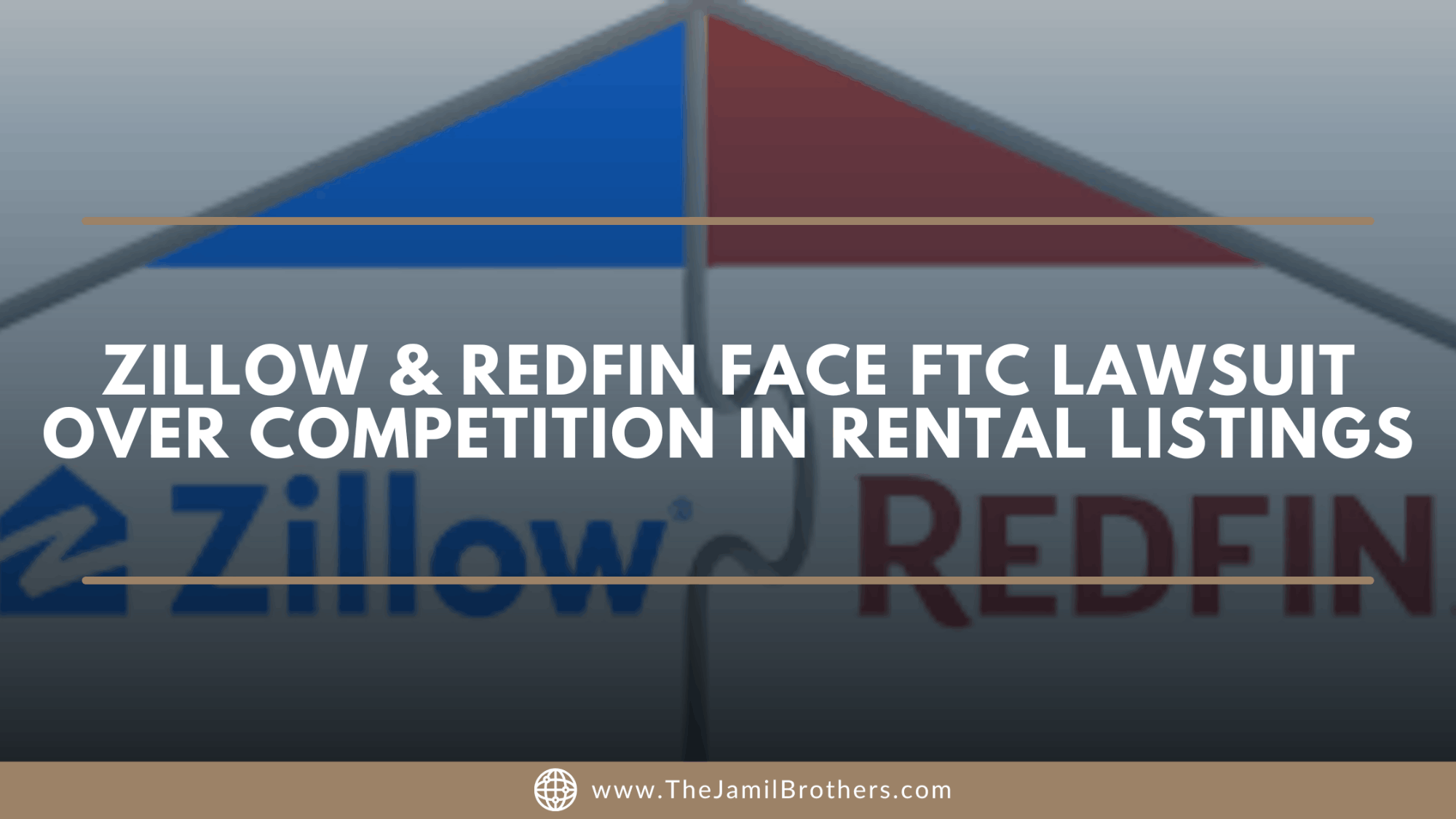Zillow & Redfin Face FTC Lawsuit Over Competition in Rental Listings

FTC Sues Zillow and Redfin: What It Means for Rental Listings
The U.S. Federal Trade Commission (FTC) has filed a lawsuit against Zillow and Redfin, accusing them of entering into an illegal anticompetitive agreement in the rental advertising market. Several states, including Virginia, Arizona, and New York, have launched parallel lawsuits, signaling the seriousness of the issue.
At the heart of the case is whether two of the most recognized names in real estate technology effectively agreed to step away from competing against each other in multifamily rental advertising—a move that could shape how millions of renters, landlords, and agents experience the online housing market.
To understand why this case is drawing so much attention, it’s important to explore what the FTC is alleging, what’s at stake for consumers and landlords, and how the outcome could reshape the future of online real estate platforms.
The Players: Zillow, Redfin, and the Rental Market
Zillow and Redfin have long been two of the most influential companies in U.S. residential real estate. Zillow, founded in 2006, quickly became the largest online housing platform by offering free access to listings, Zestimate home values, and later, advertising products for agents and landlords. Redfin, launched in 2004, built its reputation as a brokerage that paired online search tools with lower commission models for buyers and sellers.
While they often compete for consumer attention in the home search and sales space, their approaches to rentals were different. Zillow made heavy investments in rental advertising and syndication, while Redfin’s rental platform was smaller but still an emerging competitor with unique tools for renters and property managers. In a highly consolidated market already dominated by Zillow, Redfin, and CoStar (the parent company of Apartments.com), even a modest challenger mattered for competition.
What the FTC is Alleging
According to the FTC, in February 2025 Zillow allegedly paid Redfin $100 million to effectively step aside from the multifamily rental ad business. Rather than competing directly, Redfin agreed to syndicate rental listings from Zillow and wind down its own independent advertising business. This, regulators say, removed a competitor and reduced incentives to innovate, lower costs, or improve service.
- Redfin terminated existing rental advertising contracts, shifting clients over to Zillow.
- It agreed not to compete in multifamily rental ads for up to nine years.
- Its rental listings would mirror those carried by Zillow, rather than maintaining unique inventory.
- Hundreds of Redfin employees in rentals were laid off, with some rehired by Zillow.
In antitrust terms, these allegations are significant. Paying a competitor to exit a market is a textbook example of what regulators view as “market allocation” — something designed not to benefit consumers but to preserve dominance and avoid price wars.
Several states, including Virginia, Arizona, New York, Connecticut, and Washington, have also filed lawsuits echoing the FTC’s concerns. By joining forces, these states add legal and political weight to the federal case. (Reuters)
Why This Matters: The Competition Stakes
At first glance, this may sound like a battle between tech companies. But the stakes extend far beyond Zillow and Redfin. Online real estate platforms are the digital front doors to the housing market. If fewer companies compete, the ripple effects touch everyone — renters searching for homes, landlords setting prices, agents seeking visibility, and property managers planning marketing budgets.
- Highly concentrated market: Zillow and CoStar already dominate the online rental ad space. Redfin’s exit removes a key competitor.
- Costs for landlords: With fewer options, property managers may face higher fees and limited negotiating power.
- Less innovation: Competition drives new features like virtual tours, AI-driven recommendations, and improved renter communication. Without pressure, innovation slows.
- Reduced choice for renters: If multiple platforms all show identical Zillow-syndicated listings, renters lose variety and depth in their searches.
In short, this isn’t just about one lawsuit. It’s about whether a handful of platforms will control the gateways to rental housing for years to come.
Possible Impacts on Rental Listings
For renters, landlords, and agents, the implications are immediate and practical. If Zillow and Redfin operate in lockstep, the online rental experience could shift in several ways:
- Uniform listings across multiple platforms, reducing the sense of choice.
- Higher listing costs for landlords and property managers, which may be passed on to tenants in the form of higher rents.
- Lower incentive for platforms to enhance features like advanced filters, fraud detection, or communication tools.
- Duplication across sites, where renters encounter the same units repeatedly rather than a diverse set of options.
- Fewer opportunities for small or emerging platforms to gain traction, further entrenching market leaders.
In essence, the fear is not just that renters will have fewer choices online, but that the overall quality, affordability, and accessibility of rental housing information will decline.
What Could Happen Next
The outcome of this lawsuit will likely shape the rental advertising market for years. Several possible scenarios exist:
- Court intervention: Judges could block or unwind the agreement, forcing Redfin back into active competition.
- Structural remedies: Regulators might impose conditions such as divestitures, firewalls between business units, or restrictions on syndication practices.
- Precedent-setting: This case could become a benchmark for how antitrust law is applied to online real estate, similar to how past cases reshaped tech and telecom markets.
Beyond Zillow and Redfin, the case signals that regulators are paying closer attention to digital platforms controlling housing access — a sector historically under the radar compared to Big Tech. For agents, property managers, and consumers, the ruling may define not just costs, but also the visibility of homes in a market where online exposure is everything.
FAQs
1. Why is the FTC suing Zillow and Redfin?
The FTC alleges they struck an illegal deal that suppressed competition in the rental advertising market, harming landlords, renters, and advertisers.
2. How could this affect landlords?
If fewer platforms compete, landlords and property managers may face higher listing costs, limited reach, and fewer choices on how to market their units.
3. What does this mean for renters?
Renters could encounter fewer unique listings, more duplicates across sites, and slower innovation in tools like advanced filters, virtual tours, or fraud detection.
Looking to Rent or Invest in Northern Virginia?
Our team at The Jamil Brothers Realty Group can help you navigate the changing rental and housing market with confidence.
📞 Contact Us TodayCategories
Recent Posts










Let's Connect

